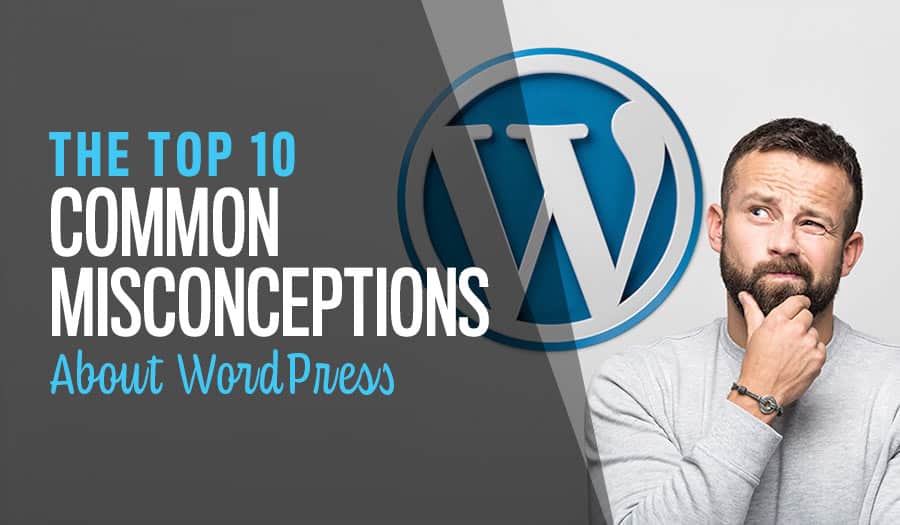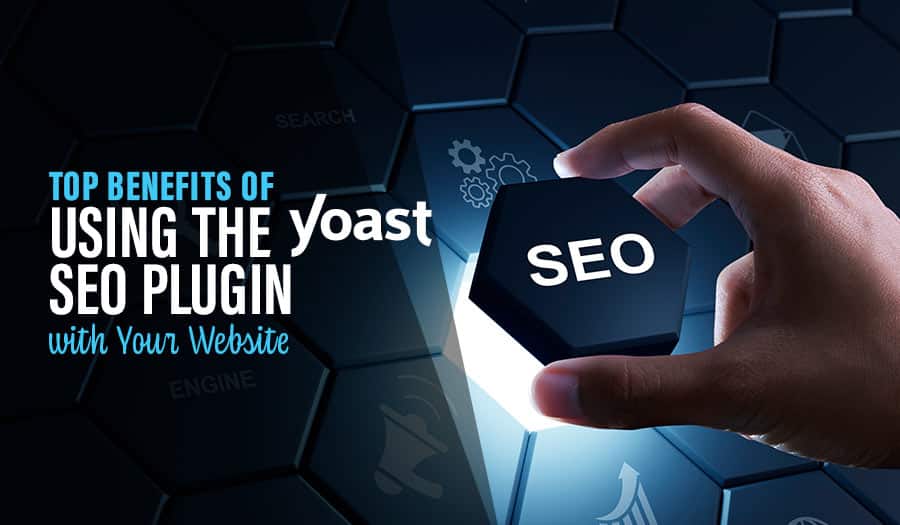WordPress is widely considered a versatile, SEO-friendly, secure and technically superior content management system that’s great value for money. You might have heard that WordPress comes with many benefits, such as its mobile readiness and social media integration. However, you might be surprised at how many big businesses use WordPress for their websites. Here are 10 Common Misconceptions About WordPress
Many web designers swear by WordPress and will only use WordPress when creating websites. Yet, there are still those unconvinced – and usually, it’s because they’ve been misinformed or have a misconception regarding the world’s most popular content management system.
Did you know that 30% of all websites on the web are powered by WordPress – including Microsoft, MTV, Facebook News and Vogue? But that’s not all. Regarding the web, WordPress is used by 60.3% of all the websites whose content management system we know.
One plus that generally appeals most to small business owners: WordPress provides website owners the freedom to alter content themselves – without the need to hire, brief and pay a web designer for the work! Yet, despite WordPress’ huge popularity and WordPress’ long lists of benefits, there are still quite a few misconceptions out there that stop some people from considering it is the right choice for their website.
So, let’s take a look at some of the myths and misconceptions surrounding WordPress:
10 Common Misconceptions About WordPress
- WordPress is only for blogs
- I’ve heard WordPress isn’t secure
- WordPress is just for small businesses
- I’ve heard WordPress is free, so how can it be good?
- WordPress is maintained by more of a community than a company – how does that work?
- WordPress isn’t great when it comes to SEO
- I’ve heard WordPress themes aren’t mobile-friendly
- A WordPress website will cost me more
- How can a WordPress site be better than building one from scratch?
- WordPress don’t do eCommerce sites
10 Common Misconceptions About WordPress
1. WordPress is only for blogs
Some people do get confused between WordPress.org (the open-source software package) and WordPress.com (a service that hosts websites, much like Blogger, Tumblr, etc).
WordPress’s beginnings in 2001 were indeed in the personal publishing realm. However, by 2008, WordPress had developed into a complete content management system.
Many developers use WordPress as the starting point to build unique designs while maintaining access to the WordPress repository and a huge library of plugins. WordPress gives you total ownership and full creative freedom whilst allowing you to install it on your own server (or that of your hosting provider).
2. I’ve heard WordPress isn’t secure
The WordPress security team is made up of around 50 security experts and lead developers who are constantly protecting WordPress from attacks. The U.S. Military have entrusted them with their website, so we think it’s safe to say they have security in hand. (That’s not to say that you don’t need to ensure your site is secure on your end, though. While no content management system is 100% secure, most hacks are the result of webmasters not following basic security best practices).
3. WordPress is just for small businesses
Nothing could be further from the truth than this one – WordPress is used by some of the world’s most recognised brands. There’s Sony, CNN, Harvard Business Review, New York Times, Mercedes-Benz and more! As we’ve mentioned, the U.S. Military and the Library of Congress are also using WordPress – so if they can trust WordPress, we’re sure it’s powerful enough for your site.
4. I’ve heard WordPress is free, so how can it be good?
There’s no catch (although people to wonder how they make money). WordPress, like all its updates, are open-source (which gives you total and complete creative freedom). There is a worldwide team of developers and contributors constantly testing, improving and updating WordPress – and while some are WordPress employees, others are simply members of the supportive and active WordPress community.
5. WordPress is maintained by more of a community than a company – how does that work?
The WordPress community has thousands of top-notch, dedicated, talented technical people who enjoy contributing, updating, fixing and testing WordPress. WordPress follows best practices as dictated by Google, Yahoo and Big and meet all guidelines of the World Wide Web Consortium.
6. WordPress isn’t great when it comes to SEO
WordPress is, in fact, known as an SEO powerhouse. The huge array of SEO plugins allow developers to ensure every aspect of your website’s SEO is addressed. WordPress say they are “optimised for search engines right out of the box” and make it easy for you to add and adjust your own content.
7. I’ve heard WordPress themes aren’t mobile-friendly
With more people accessing the web on mobile devices than desktop computers, this is an important misconception to address. We all know responsive sites are better for SEO and so does WordPress. That’s why WordPress supports responsive themes. If you have an existing site with a theme you selected that was not mobile-friendly, WordPress enables developers to change to a mobile responsive theme without having to begin from scratch.
8. A WordPress website will cost me more
Instead of costing more, your website should actually cost you less. Let’s look at why: while designing the look and feel of a website using WordPress may be beyond the technical skills of the average business owner meaning they will likely want to hire a web designer to create their website, WordPress provides the framework for web designers to build upon – saving money on the basics. Not to mention that the on-going costs will be minimal because creating and publishing pages and posts is something most business owners will manage with ease.
9. How can a WordPress site be better than building one from scratch?
As we’ve mentioned, WordPress provide the basics so your developer doesn’t have to reinvent the wheel (and charge you for doing so). Your developer gets to begin with a well-coded framework that has been proven and tested. You can rest assured that if your developer disappears, another will be able to jump right in where they left off due to the fact WordPress is so widely used.
10. WordPress don’t do eCommerce sites
WordPress plugins, such as WooCommerce, are wildly popular in the eCommerce space because they make it easier for you to make a sale. Allowing you to optimise your content more efficiently allows you to direct more people to your brand.
WordPress is great at teaching it’s users which words lead to increased sales, and even lets you know which ones will not. Not only does WordPress do eCommerce, it does it very, very well!
If you’re ready to create a website for your business using WordPress, or if you’ve already got a WordPress site and would like to discover how it can perform more effectively, the team at Pixel Fish are ready to help when you’re ready to get in touch.
Speak to the WordPress experts and take your business to the next level with a Pixel Fish Website.
Check out some of our latest Website Design projects.
Further Information
Top 10 Steps to Start a Successful Online Store
What Is Google PageSpeed Insights and How it Can Improve Your Website
How to Successfully Balance UX and SEO for The Most Effective Website
10 Reasons Your Website Is Fundamental to the Growth of Your Business
10 Best Practices for a Successful WordPress Website Design Project10 Best Practices for a Successful WordPress Website Design Project10 Best Practices for a Successful WordPress Website Design Project10 Best Practices for a Successful WordPress Website Design Project10 Best Practices for a Successful WordPress Website Design Project10 Best Practices for a Successful WordPress Website Design Project



